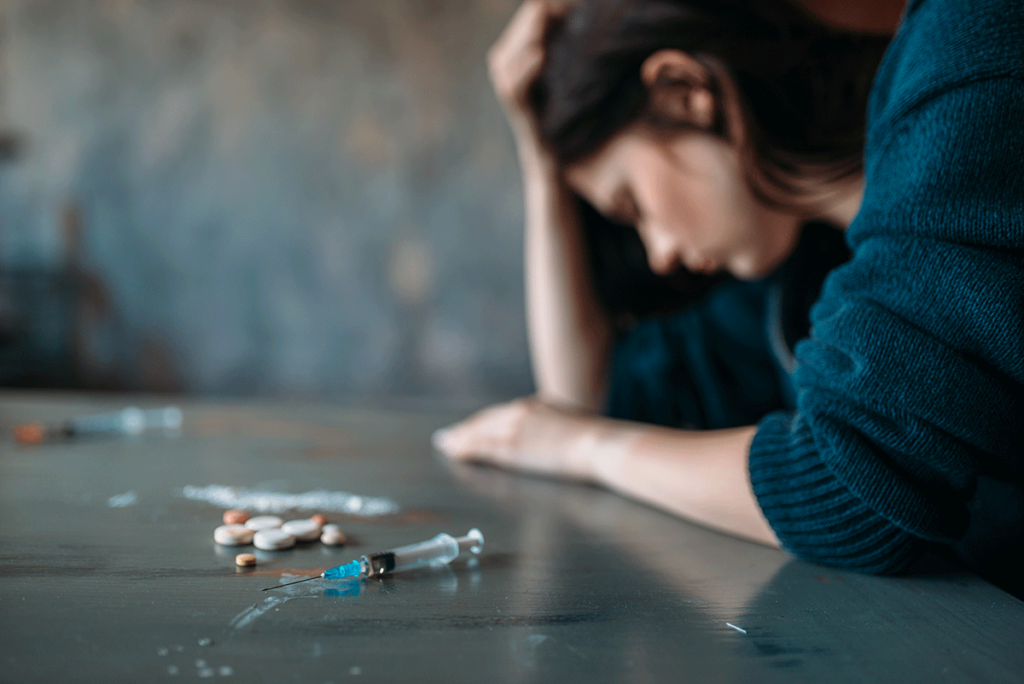Heroin abuse can start whether you use illegal substances or misuse prescription drugs that contain opioids. Because opioids, the active ingredient in heroin, have such strong addiction potential, it can be easy for you or someone you love to develop a dependence without realizing it. After developing an addiction to prescription opioids, it can be easy to start using heroin to get the same feelings. If you recognize the signs of heroin abuse, it’s critical to stop using drugs as soon as possible. Fortunately, help is available. If you’re looking for a San Antonio heroin rehab program that offers dignity and empathy, The Right Step Hill Country is here to help. Call 1.844.675.1628 for more information.
How Heroin and Opioids Work
Heroin is a drug made from morphine, a substance that contains powerful chemicals called opioids. Many prescription painkillers contain opioids that have an effect similar to heroin. Opioid chemicals block pain signals between the brain and body, relieving severe physical pain.
Opioids also create a surge of dopamine, a feel-good chemical, in the brain’s reward center. This leads to a relaxed, happy feeling—the “high” people seek when taking heroin recreationally. When people return to the drug to experience this feeling again and again, they risk becoming addicted.
Signs of Heroin Abuse to Spot
Drugs that contain opioids, like heroin, can lead to physical dependence if they are misused. The brain becomes accustomed to having a certain amount of opioids in the system. Without enough of the addictive substance, the brain stops functioning correctly, leading to painful withdrawal symptoms. These symptoms are a reason many people may not be able to stop using heroin on their own, even if they want to.
When someone continues to use heroin despite negative consequences, they may have developed an addiction. Specific physical and behavioral symptoms of heroin addiction vary based on individual factors, like how long and how often a person has been using the drug or whether or not they combine heroin with other drugs or alcohol.
Behavioral Signs
These behaviors may signal heroin abuse:
- Extreme mood swings
- Anxiety, agitation, and irritability
- Taking more heroin or using heroin for a longer period of time than intended
- Failing to meet important responsibilities because of heroin use
- Lying about heroin use
- Hostility
- Delusions, hallucinations, and paranoia
- Possessing paraphernalia associated with heroin use, such as needles, syringes, burned spoons, or glass pipes
- A decline in personal hygiene
Physical Signs of Heroin Abuse
Some physical signs of heroin addiction include:
- Developing a tolerance or requiring larger doses of heroin to achieve the effect they want
- Experiencing constant cravings for heroin
- Shortness of breath
- Frequent respiratory infections
- Small “pinpoint” or constricted pupils
- Scabs, bruises, or track marks on arms and legs
- Bloodshot eyes
- Forced or slurred speech
- Collapsed veins
If someone displays many of these symptoms at once, they may be abusing heroin.
What Are the Risks of Heroin Use?
Heroin significantly damages a person’s health, and the damage worsens the longer they use the drug. Internal organs and the immune system are especially at risk. After long periods of heroin use, a person is at increased risk of:
- Lung, liver, and kidney diseases
- Heart disease
- Collapsed veins
- Damaged nasal tissue
- Skin diseases or abscesses
- Blood clots, which can lead to strokes and heart attacks
- Seizures
- Hepatitis
Other conditions that can be a result of heroin use, like insomnia, depression, and anxiety, may not be life-threatening but still affect an individual’s physical and mental health significantly.
Signs of a Heroin Overdose
Because heroin slows down breathing and heart rates, an overdose of heroin can be incredibly damaging. Fatal overdose is a significant risk, and even nonfatal overdoses can cause comas or brain damage.
Unresponsiveness and slowed or stopped breathing are two main signs of a heroin overdose. Someone who has overdosed may appear to be asleep. Other symptoms include a dry mouth, constricted pupils, blue-colored nails and lips, and uncontrolled muscle spasms. A changed mental state, where a person is delirious or not making any sense, may also indicate an overdose. Immediate medical attention is necessary.
Treatment for Heroin Addiction at The Right Step Hill Country
Our opioid addiction treatment center is designed to treat the whole individual, including their physical, mental, and behavioral needs. In our drug detox program, clients have a safe, supervised space to withdraw from heroin. Doctors may administer medication to relieve withdrawal symptoms.
Intensive therapy is a cornerstone of our opioid addiction treatment program. When clients delve into the reasons behind their heroin use and develop healthy coping mechanisms, they’re more likely to quit for good. Our skilled therapists help clients plan to avoid relapse and tackle the issues that may have contributed to their addiction in the first place.
Recovery from heroin abuse is possible. Contact us at 1.844.675.1628 or via our online form to learn more.

